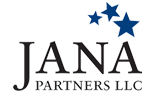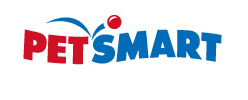By Alex Gavrish, Etalon Investment Research; author of “Wall Street Back To Basics”
With activist investors more active than ever, more and more attention is being paid by investors to the investments they make. Publicity often reduces hedge funds maneuverability and ability to trade positions quickly. Fund managers have to work with this restriction on their freedom of movement – this week’s investment by Jana Partners in shares of PetSmart Inc makes for an interesting case in point.
Jana Partners discloses PetSmart stake
On June 3rd, 2014, an activist hedge fund Jana Partners disclosed a 9.9% stake in shares of PetSmart Inc, a specialty retailer of products and services for pets. Its position consists of an outright stock purchase of 5.09 million shares acquired at an average cost of $58.07 per share, and call options on 4.73 million shares with an exercise price of $50 per share, expiring in September 2014. The average cost of shares that would be acquired by exercising option contracts is $59.63 per share. The combined average cost of the position would be $58.82 per share.
Activists must proactively manage risk
The pattern of acquiring part of the position through options is not new to Jana Partners. Last year, a 6.2% position in shares of Safeway Inc was structured in a similar way. The dollar amount allocated to purchasing option contracts was about 7% of the invested amount, while shares acquired if contracts were to be exercised represented 24% of the position’s overall size. As Safeway’s management quickly acceded to activist’s demands, in a period of about two months hedge fund decreased its position to 4.2% from the initial 6.2%. Subsequently, Safeway was bought out by Albertson’s, a supermarket chain owned by Cerberus Capital Management. In case of PetSmart, the structuring of the position is even more aggressive: 13% of the initial amount of funds was allocated to call options purchase. At the same time, once exercised, the shares would represent 48% of the total position size. Structuring the investment this way, the hedge fund receives an economic exposure equal to $578 million while actually investing only $341 million.
What can be learned from this? By structuring the position this way, activist hedge fund achieves two objectives. First, it insures itself against possible mistakes. The stakes are high: $578 million is not a small amount of money and retail sector is not in the best possible shape. Investing only 52% of “total commited” amount will help mitigate losses if some negative surprises occur. Second, activists are well aware they are being closely watched and receive a lot of publicity. As a result of disclosure requirements they have less maneuvering and flexibility. However, it seems that Jana Partners found a way to compensate this loss of flexibility by taking advantage of another effect of publicity. Disclosure of an activist involvement usually pushes the stock price higher. Reporting “total” amount of shares, in this case, 9.9% of shares outstanding, guarantees more impact than if a smaller stake of, say, 4.9% was disclosed.
Central Garden and Pet received buyout offer from Harbinger Group Inc
On June 23rd, 2014, Central Garden and Pet Company, a marketer and producer of branded products for the lawn and garden and pet supplies markets, received a buyout offer from Harbinger Group Inc. The firm offered to acquire the company for $10 per share, implying market capitalization of $505 million and enterprise value of $1,019 million. Alternatively, it offered to acquire company’s Pet products segment for $750 million in cash, subject to due diligence. The offer for the whole company reflects an x13.9 EV/EBITDA valuation multiple (based on company’s last full fiscal year results) and an x10.5 EV/EBITDA multiple (based on company’s average EBITDA for 2011-2013 years). According to Harbinger Group’s website, one of the acquisition criteria for the companies it seeks is the need of a financial restructuring or operational turnaround. To this end, it seems that there is such potential in Central Garden and Pet Company. Company’s net current assets (current assets minus current liabilities, excluding cash and equivalents, and debt) equal $559 million. Optimization of this balance of inventory and account receivables by 50% would decrease an enterprise value to $740 million. In this case the valuation multiples look more attractive: they decrease to x10.1 and x7.6, respectively.
Based on the latest closing price of $67.28 per share, PetSmart has a market capitalization of $6,675 million and an enterprise value of $6,964 million. This reflects an EV/EBITDA valuation multiples of x7.5 and x8.2 for the last full fiscal year and last three year’s average results, respectively. Company generated, on average, $483 million in free cash flow during last three years and returned a significant amount of these funds to shareholders through stock buyback and dividends ($419 and $66 million annually, respectively).
Upside potential
Harbinger Group’s proposal, although for a different type of company, provides a reasonable indication of a value that a private equity or other acquirer might pay for PetSmart. Applying an average of the valuation multiples for Central Garden and Pet Company computed above (x10.5), and based on last fiscal year EBITDA ($929 million), PetSmart could be valued at an enterprise value of $9,752 million and equity value of $9,463 million. Such valuation would provide a 42% upside from current market price. The activist hedge fund’s desires regarding possible sale of company might not materialize, but reasonable valuation and attractive free cash flow yield (about 7%) provide a meaningful margin of safety for a long-term oriented investor. The use of options is tactical, the inherent value in PetSmart is a strategic view by Jana Partners.


